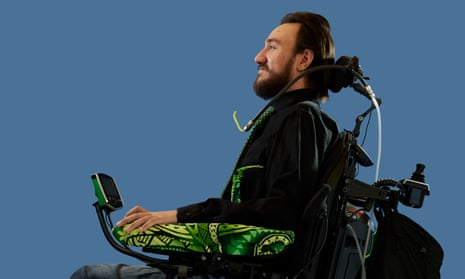ONE guaranteed thing in life is death but for one man, it felt like that would never happen as he was trapped in a coma for 10 months. Enduring chronic pain and constant boredom, 27-year-old Jake Haendel found himself praying for his life to end, until he heard medical staff planning to turn off his life support. Speaking on the We're All Insane podcast, Jake explained that he is the only survivor of an extremely rare brain disease called ATPL.
![[Man in a chair describing his life before a coma.]](https://www.thesun.co.uk/wp-content/uploads/2025/02/3b359182-9f8e-430d-b0f2-de119dfc8c26.jpg?strip=all&w=592)
He is also one of the only people to recover from locked in syndrome, which is a often referred to as a coma. In 2017, Jake was newly married and working as a head executive chef, describing himself as "able-bodied, able to do whatever I wanted". However, he noticed he felt kind of weird one day, struggling with his balance and involuntarily swerving while driving. Jake's voice also got a little higher pitched and people close to him noticed he was "acting weird".
![[Man in a wheelchair standing and raising his arms in a physical therapy gym.]](https://www.thesun.co.uk/wp-content/uploads/2025/02/68d4d56e-ca0c-4688-b5b7-a615ba7638ab.jpg?strip=all&w=576)
"I remember walking down the halls of my house, having to reach out and hold the walls," he recalled. After two weeks of experiencing these symptoms, he decided to go to the emergency room. His now ex-wife played a voicemail he had left for her for a team of doctors. "They heard a totally different voice," Jake explained. "So I was admitted with stroke-like symptoms and given an emergency MRI.". At this point he thought he would still be able to return home with some medication help whatever issue he was having.
"But life would definitely never be the same, in the morning, I woke up and there were about eight doctors in the room with somber looks," he said. "They said: ‘We’re so sorry, you have six months to live. You have an extremely rare brain disease’ and they laid it out for me.". The medical experts explained that Jake would lose the ability to walk without support after the first month and would barely be able to tolerate sitting in a wheel chair after two.
"Months three and four, I will become bed bound and lose the ability to eat, swallow, and talk," he recalled. She said: ‘Don’t worry, he can’t hear you, he’s brain dead anyway.'. "In month five, I will slip into a coma, which is stage four of the disease, and probably pass away.". All of their predictions came true but at the fourth and final stage, Jake defied the odds. "I was given a ventilator to breathe, a feeding tube, all the hookups, the bells and whistles," he said.
By the beginning of November he could no longer talk or even blink and eventually he noticed the medical staff stopped talking to him altogether. "Two nurses were working on me and one said to the other: ‘I’ve got to tell you about this real awkward hook up I had last tonight,'" he recalled. "Internally, I was still the same guy with the same sense of humour, I was like ‘Wow, this is the best thing I’ve heard in months. I can’t wait to hear where this goes.’".
When the other nurse warned her not to tell the story in front of a patient, her colleague's response shook Jake. "She said: ‘Don’t worry, he can’t hear you, he’s brain dead anyway,'" he told podcast listeners. "So that was the first time I learned how I was perceived, I was like ‘Holy s**t, they think I’m brain dead.’. "I immediately felt panicked and I was like ‘I’ve got to let them know.’".
Minutes felt like hours, hours felt like days, days felt like months, months felt like years. He described the "sheer panic" and "constant emotional and physical pain" he was in at this time. However, Jake decided to spend his time "more wisely" and kept himself calm by testing his memory with maths problems and geography capitals. He also spent what felt like hours recounting every detail of his childhood he could remember.
"Minutes felt like hours, hours felt like days, days felt like months, months felt like years," he said. Then one day, he heard a hospice nurse tell his then wife he had hours left to live. "They say: ‘We’re really sorry your husband’s not going to make it to Christmas. It’s time for us to think about withdrawing life support,'" he remembered. And despite wishing for death and fearing that he would remain in his locked in state for the next 40 years, Jake felt panicked.
"I was like: ‘No, don’t do that, I’m here,'" he said. After making it through Christmas, he was moved to another part of the hospital, since he was neither dying nor getting better. Jake described how one nurse would come in and "yap about her day", even singing him opera on occasion. Wow, I think this is dying, this is definitely death. Another night shift worker would place her fist on his chest and tell him everything was going to be OK.
He described the level of pain he was in, with his bladder feeling like it was overfilling and his bones, muscles, and tendons feeling like they were in a vice grip being "twisted and contorted". Hypersensitive to the lightest of breezes, Jake said even his fingernails began to hurt. He recalled how he would "lay there waiting to die" and one day he thought it had finally happened. Jake explained that the volume of things around him became lower, as if his brain made it happen.






























